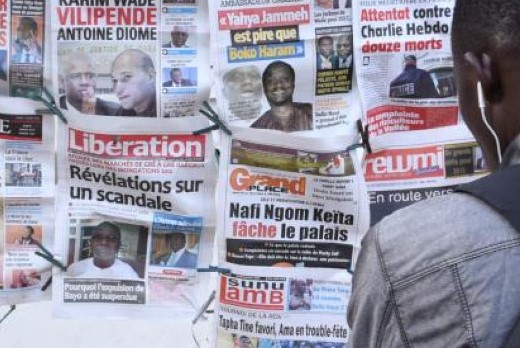Need to end impunity for crimes against journalists in Africa

The impunity for crimes against journalists is likely to end through more awareness on role of media at a local level and trust building among key stakeholders such as journalists, police, and policy makers.
Ending impunity for crimes against journalists is one of the most important and complicated challenges of recent times. Many journalists, media professionals, and associated media personnel exercise their duties in highly dangerous contexts, taking the risk of death, enforced disappearance, torture, unlawful detention, and kidnapping, for producing independent, reliable, and verifiable information.
Many journalists are particularly experiencing harsh conditions throughout the African continent in the midst of crisis and emergencies. Journalists are forcibly conscripted into the military in Burkina Faso, kidnapped by armed groups in Mali, killed in Chad, and arbitrarily arrested in Niger. Newsrooms in countries across Africa’s Sahel region are being ransacked and looted, and many media outlets, especially foreign ones, are banned.
In addition to forced conscription into the army, kidnappings, and intimidation and acts of violence against journalists, there are other threats to the right to information in the Sahel, including the media’s failing economic model, freedom-destroying measures taken in the name of national security, the absence of a policy to combat disinformation, and the abusive suspension of media outlets.
In essence the emerging and despotic global political order sees journalists and media as predominantly political actors who must be controlled, leashed or worse – jailed or killed. Impunity for crimes against journalists is not only being seen in arrests and violence but also in the weaponisation of online spaces. Under the cover of technology, some African governments are leading an onslaught on journalists.
In one example in Zimbabwe, a senior state broadcast manager was suspended after recordings of his sexual harassment of a junior woman employee were published. Unfortunately, with all its opportunities for increased audience reach and innovative ways of sharing content, the online spaces have equally opened another avenue for abusing journalists. Africa’s challenges on this matter include securing online spaces, but any talk of regulating online spaces to protect journalists is seen as endorsement of severe online restrictions.
However, amid all this darkness, some African governments are doing well in reforming media spaces and enhancing the safety of journalists. In Zambia, criminal defamation was scrapped in 2022. In Tanzania, the government has started dialogues on reforming the repressive Media Services Act, with IMS partners actively working together in coalitions and advocating for reforms. In Ethiopia, IMS has supported its partners in setting up a Safety of Journalists coalition.
The lesson taken from these examples is that impunity for crimes against journalists is likely to end through more awareness on role of media at a local level and trust building among key stakeholders such as journalists, police, and policy makers. In the global crisis on journalistic rights, defending free expression requires strong local civil society with the ability to act on its own issues.
References
www.un.org/en/observances/end-impunity-crimes-against-journalists
www.mediasupport.org/blogpost/redefining-safety-of-journalists-in-africa-in-an-uncertain-world/
www.rsf.org/en/rsf-calls-authorities-sahel-region-sign-declaration-right-information#:~:text=Journalists%20are%20forcibly%20conscripted%20into,foreign%20ones%20%E2%80%94%20are%20now%20banned.

